Chaired by Baroness Beeban Kidron, Lelia Green delivered a concise introduction to the research reported in the book before an expert panel discussed the issues arising for digital media use in early childhood, including a Q&A with a very engaged and expert audience. The panel included authors Sonia Livingstone and Brian O’Neill as well as Susan Danby, who directs the Australian Research Council’s Centre of Excellence for the Digital Child.
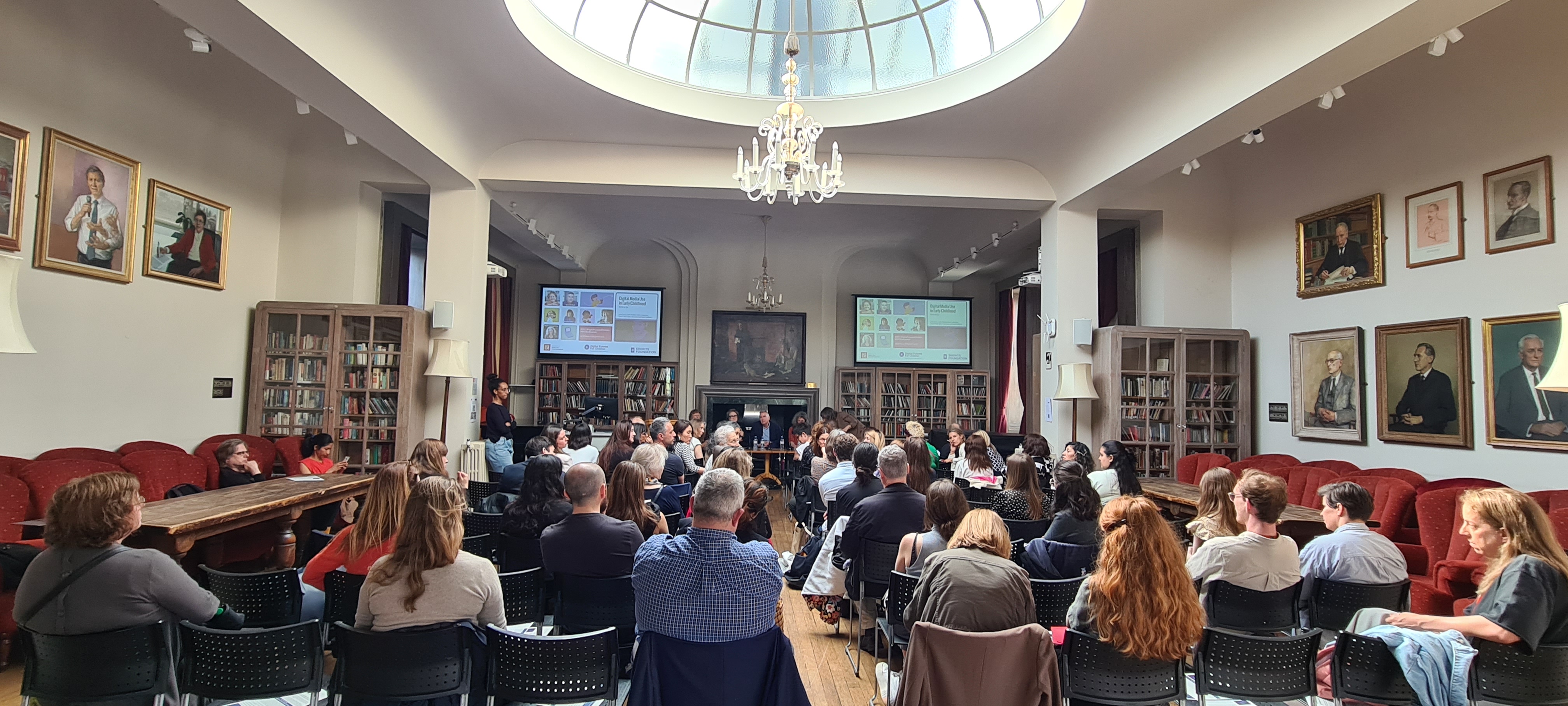
Here are some key takeaways:
1. Ethical research with young children is possible, and much needed
While it may not be obvious in a gathering of early-years academics, research on digital life has been missing the perspectives of young children. Without extensive research, this stage of children’s lives, and that of their carers, is prone to misinformed claims that can ultimately deter their interests. Green shared how years ago, they realised the need for a book such as theirs became obvious to the team when she, along with Livingstone, published a report for EU Kids Online. The report, which looked at research for under 8s. “has since been downloaded from the LSE website more than 50,000 times,” she adds. Often, doubts about ethical methodology and children’s impressionability may discourage researchers, while others may take their perspectives for granted “When establishing our centre for the Digital Child, we often encountered the response that ‘who cares what young children do anyways?” shares Danby. The book tackles this dearth while advocating that children cannot be spoken for. It shares methods for responsibly capturing children’s interactions, along with a glimpse into the lives of 22 families and 29 children.“What stands out in this book is how effectively the voice of children comes through,” says Kidron.
2. When looking at tech, we need to know what happens beyond it
Young children’s family dynamics, parental attitudes, generational migration, economic dispositions, and urgencies in our wider society affect their interactions with technology. So when we make claims about this complex, diverse world, we need to be mindful of where our understanding comes from. A recent example is that of headlines about about a decline in children’s “school readiness.” While tabloids may suggest this to be a fault of electronic devices, Green points out how recent surveys may miss the impact of the pandemic, where young children’s movement and interactions with the outside world have been limited. Early childhood, she argues, is not a field where we can have controlled studies about matters of tech, and instead, researchers and readers must look at other influential factors.
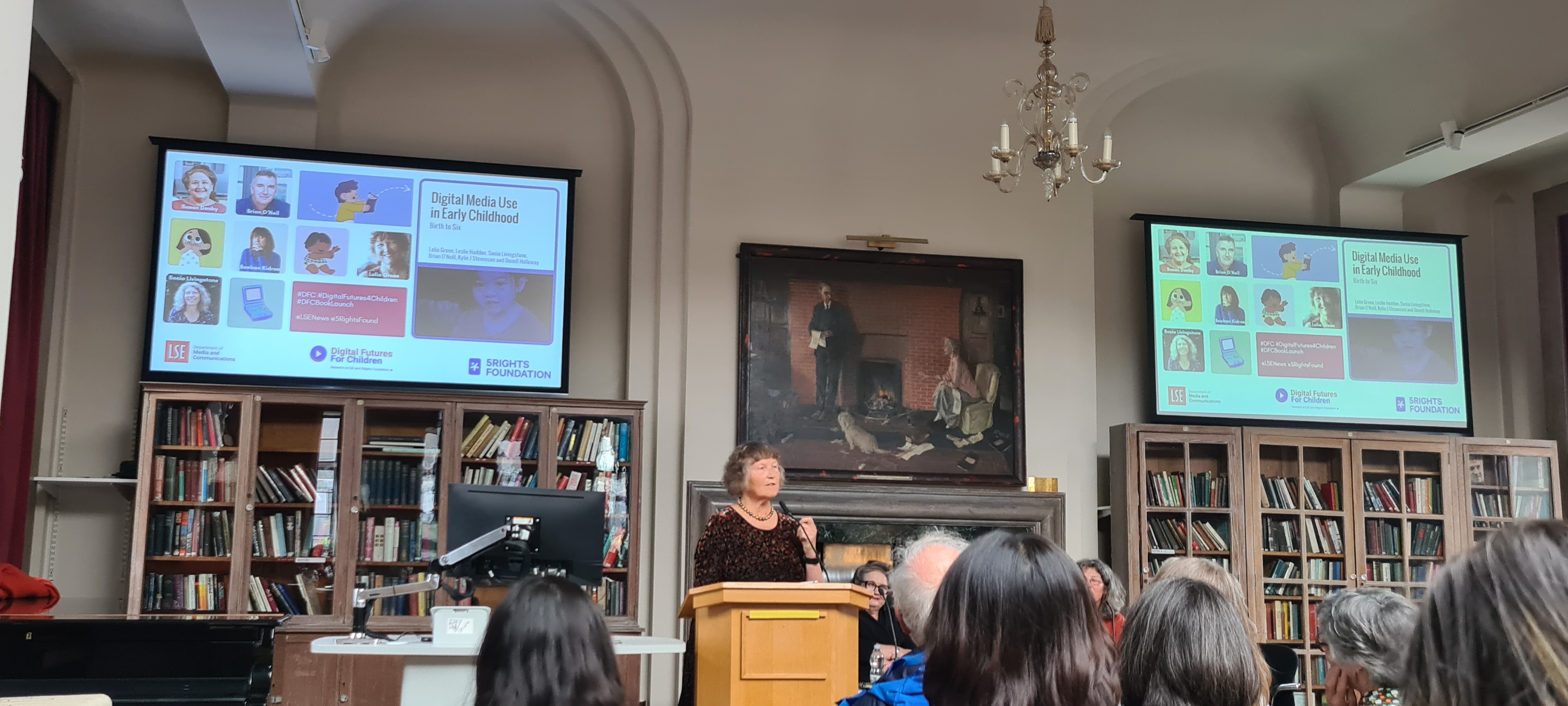
Similarly, Livingstone points out that when it comes to simplistic understandings or censure of “screen time”, we may miss how devices may increase the quality of learning, enable connections with distant family, and also do harm.Outside of top-down instructions of no-screens, she points to the fact that in the UK “there have been decades of cuts in initiatives that would support children and parents, from childcare to parental leave” which may ultimately leave parents with difficult choices about whether or not they should introduce devices, or whether they have the time to carefully monitor the content on them.
Green: Parents moderate their rules according to their priorities. Rita Chen, who migrated to Australia from China, won’t allow toddler Lavinia to play video games because they are ‘addictive’. Watching Peppa Pig is different:
“They teach what Christmas is about,” says Rita, adding that when Lavinia gets to kindy, and other kids talk about Peppa Pig, “she knows about it too. I don’t want, you know, [that] she feel, you know, lonely and then there’s no socializing with the other kids.” (p. 125).
3. Creating a supportive environment for parents and carers
From setting examples for their children, managing jobs, and domestic responsibilities, and the shifting, dizzying advice about parenting and tech, the book finds that parents may often find themselves in an isolated, stressful battle about what good looks like. Introducing the book, Green shared that “Parents were concerned about tech’s mesmerizing and addictive qualities, its displacement of physical and social activity, and the possibility of shortened attention spans. Notably, they blamed themselves and felt guilty that they didn't have all the answers. None of them suggested that big tech, or app designers, should be more actively regulated or held in any way responsible.” Therefore, our academic and policy guidance should account for the realistic capacities and experiences of families, and seek to create accessible, non-judgemental resources for parents.
Green: Some two- and three-year-olds have sufficient skills to support self-directed play. Lorenzo Tosetti worries that he may allow ‘too much’ screen access to Leopoldo in the evenings, when both Leopoldo's parents are tired after work (p. 133). But Sandra Ross justifies her position by saying, about Penny, “It does make sense sometimes to go, ‘You know what, you’re going to be happy for five minutes; I’m going to be happy for five minutes. Yeah, why not?’” (p. 133).
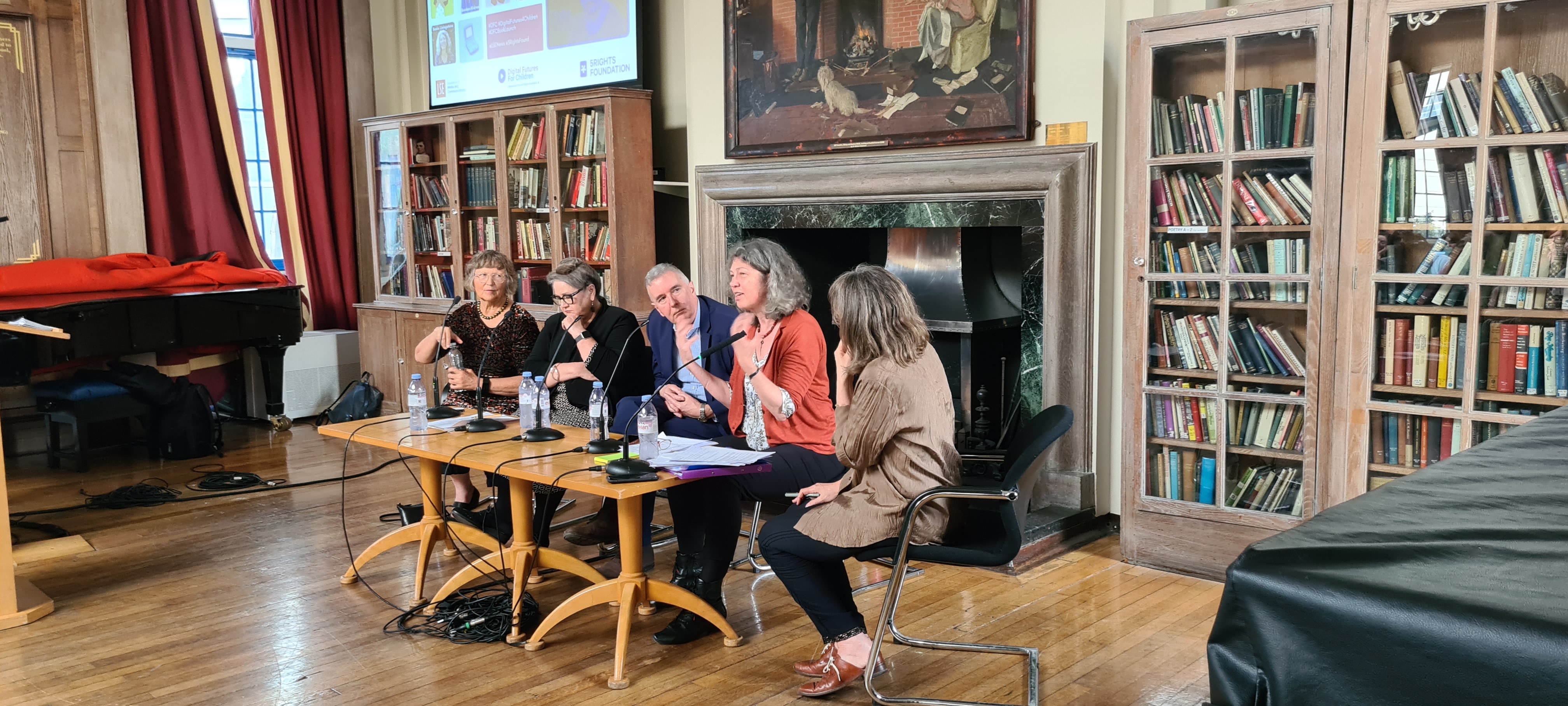
4. Holding tech giants accountable
On the other side of parents’ isolating situation where they may individualise responsibility is the presence of tech companies. Here, claims of new and innovative products often manage to outpace regulation or research, with AI being a recent example. Therefore, the authors point to the need to look at the wider changes and liabilities for designing responsibly for children. Here at the DFC, our recent report finds that companies may instead cite mischaracterisation of the ‘best interests’ of children in advocating for increased access into their lives. Beyond screen time, Brian O’Neill adds that it is important to understand children’s “developmental milestones and what foundation technology lays for a developing childhood. There are ongoing discussions of what is at stake.”
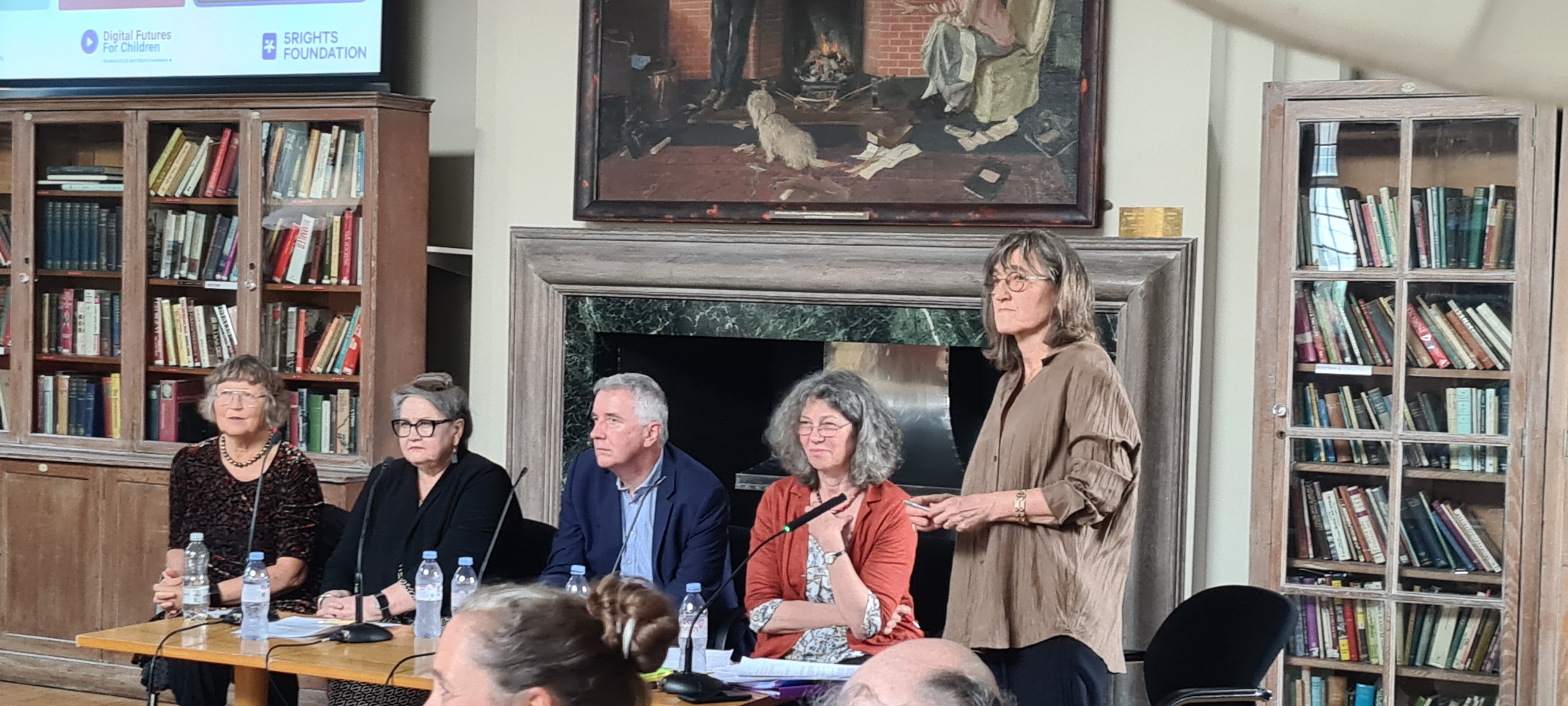
5. The need for disciplinary collaborations when trying to benefit young children
Beyond the book, which brings together expertise in early-years research methods, policymaking, digital research and law thanks to its co-authors, the event and panel show the benefits of having these conversations with a diversity of stakeholders. In our audience, we were fortunate to have educators, journalists, and academics who do not necessarily all research children.This, we find is a plus, and allows us to address challenges. There remain silos when looking to prevent harm to children, researchers may undertake important studies that may ultimately be behind paywalls or in academic conferences, and not reach advocates. Policymakers may struggle to look for evidence in newer areas or recommendations may struggle to be actionable. Parents and teachers may find overarching guidelines unrealistic, and uncaring of their their workloads or stressors into account. For there to be holistic possibilities for change, we need more of these dialogues, between advocates and policymakers, between carers, teachers and researchers, and between critics and tech companies.
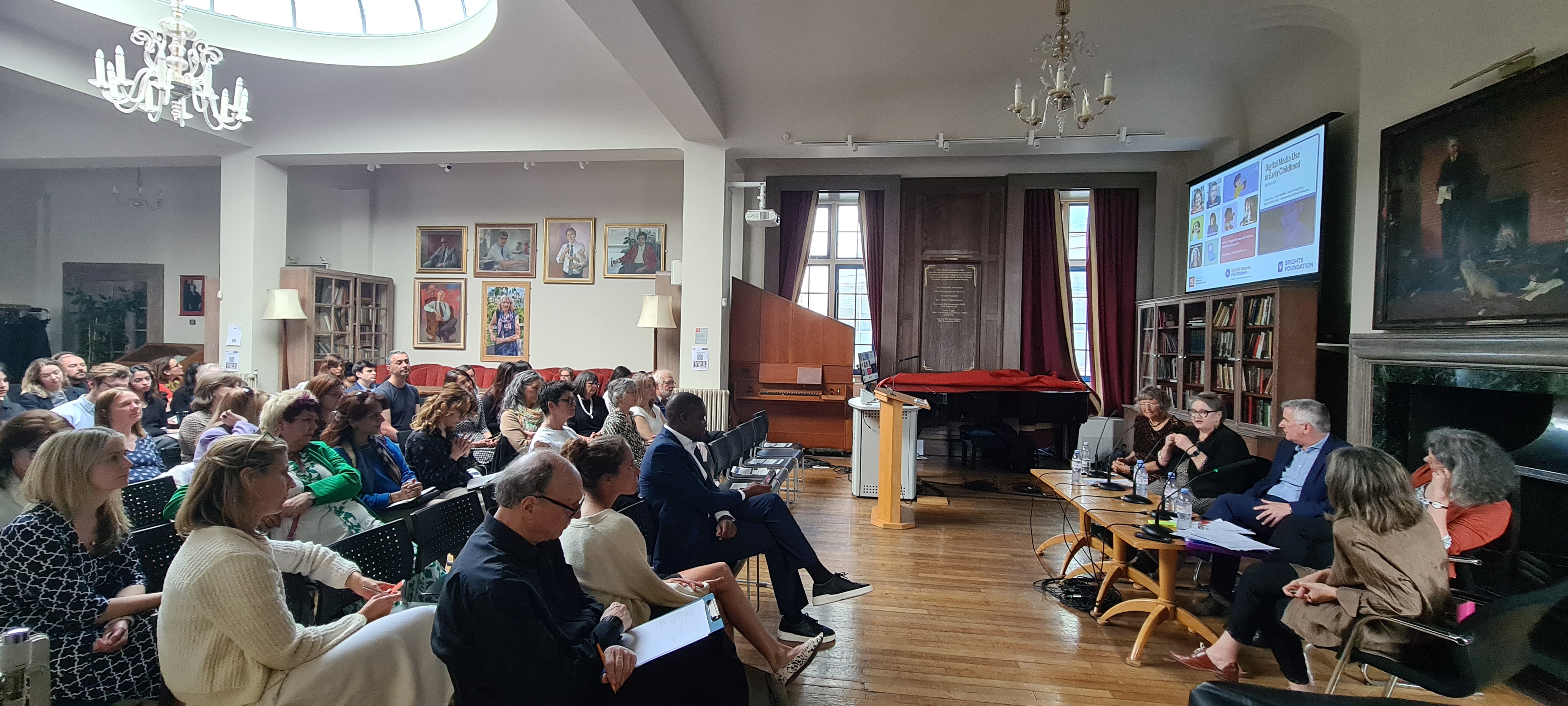
About the book
The book draws on a three-year research project examining the realities of under six-year-olds' experiences of digital technologies in the UK and Australia.
“This book offers a complexified view of young children’s uses of technologies and appreciates diverse configurations of families. The book recognizes young children as rights holders in accordance with the United Nations Convention on the Rights of the Child. It offers helpful insights for those working in early childhood and family contexts as educators, researchers, and policymakers.” - Lori McKee, Associate Professor in Curriculum Studies, University of Saskatchewan, Canada
"This fascinating book challenges established notions about children and technology and offers significant insights into issues such as digital parenting, screen time and learning through digital media. This important book is a must-read for researchers, educators and policy makers alike and will undoubtedly inform future global research and policy agendas in this area." - Jackie Marsh, Emeritus Professor, University of Sheffield, UK
Advance orders of the book are available with a 35% discount here
Event report author: Gazal Shekhawat